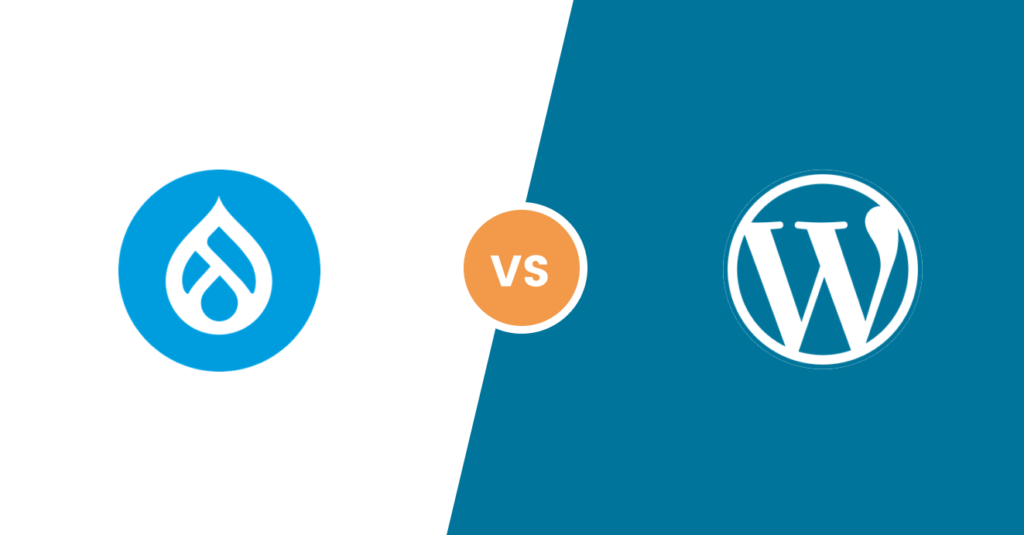Level up your business with US.
- Home
- WordPress vs Drupal: Which is the Best eCommerce CMS in 2025?
WordPress vs Drupal: Which is the Best eCommerce CMS in 2025?
June 29, 2025 - Blog
WordPress vs Drupal: Which is the Best eCommerce CMS in 2025?
Building a successful eCommerce store in 2025 requires more than attractive design and fast load times; it demands a robust, flexible, and scalable content management system (CMS). Two of the most popular open-source CMS platforms — WordPress and Drupal — remain go-to choices for businesses launching or expanding online shops. But which is best suited for your eCommerce project in 2025?
This blog breaks down how WordPress and Drupal compare for eCommerce, including ease of use, customization, security, scalability, and community support. We’ll also explain how Code Driven Labs helps businesses choose, customize, and optimize the right platform for seamless eCommerce experiences.

WordPress for eCommerce in 2025
WordPress powers more than 40% of websites globally, making it the world’s most popular CMS. While it started as a blogging platform, it has evolved into a versatile website builder thanks to thousands of plugins — especially WooCommerce, the leading eCommerce plugin.
Strengths of WordPress for eCommerce:
-
Ease of Use: User-friendly interface for managing products, orders, and content. Perfect for small and medium businesses without a dedicated IT team.
-
Plugins & Themes: Tens of thousands of plugins for SEO, marketing, payment gateways, shipping, and more.
-
Community Support: Massive global community offering themes, extensions, and support forums.
-
Lower Development Costs: Easier to find affordable developers and prebuilt themes to get started quickly.
Weaknesses:
-
Security Risks: Popularity makes it a bigger target for hackers. Vulnerabilities often stem from poorly coded plugins or outdated installations.
-
Performance at Scale: While WooCommerce works well for small and medium stores, very large catalogs or high traffic can cause slowdowns without careful optimization.
Drupal for eCommerce in 2025
Drupal is a powerful, enterprise-grade CMS known for its flexibility and scalability. While not as beginner-friendly as WordPress, it excels in custom eCommerce projects with complex requirements through modules like Drupal Commerce.
Strengths of Drupal for eCommerce:
-
Flexibility: Granular control over content, user permissions, and workflows, making it ideal for multi-language, multi-storefront, or B2B eCommerce.
-
Scalability: Better suited for enterprise-level sites handling large catalogs, thousands of SKUs, and high user loads.
-
Built-in Security: Strong security architecture with a dedicated security team and regular updates.
-
Advanced Customization: Drupal’s architecture is highly adaptable, allowing for unique features tailored to business processes.
Weaknesses:
-
Steeper Learning Curve: Non-technical users may struggle with Drupal’s admin interface and architecture.
-
Higher Development Costs: Typically requires specialized developers with Drupal expertise, which can raise project costs and timelines.
-
Fewer Off-the-Shelf Plugins: Compared to WordPress, Drupal relies more on custom development.
WordPress vs Drupal: Key Comparisons for eCommerce
| Feature | WordPress + WooCommerce | Drupal + Drupal Commerce |
|---|---|---|
| Ease of Use | Excellent for beginners | Requires technical expertise |
| Customization | Great with plugins/themes | Superior for unique features |
| Scalability | Moderate | Excellent for enterprise |
| Security | Good but plugin-dependent | Industry-leading security |
| Cost | Lower initial investment | Higher development costs |
| Community | Massive ecosystem | Strong but smaller community |
When to Choose WordPress
-
You’re a startup or SMB wanting to launch quickly with a user-friendly CMS.
-
Your store will have a moderate catalog size (hundreds, not hundreds of thousands of products).
-
You need easy integrations with marketing and SEO tools.
-
Budget constraints make affordable development essential.
When to Choose Drupal
-
You’re building a complex, large-scale eCommerce platform with enterprise features.
-
You need multi-language, multi-storefront, or advanced user roles.
-
Security, compliance, or custom business workflows are top priorities.
-
You have access to experienced Drupal developers or an agency partner.
How Code Driven Labs Helps You Choose and Build the Right eCommerce CMS
Selecting between WordPress and Drupal is just the first step; successful implementation requires deep technical knowledge, thoughtful architecture, and ongoing optimization. That’s where Code Driven Labs comes in.
1. Platform Assessment
They evaluate your business goals, catalog size, expected traffic, and technical resources to recommend the most suitable CMS for your needs.
2. Custom Development
Whether building a WooCommerce-powered WordPress store or a Drupal Commerce site, Code Driven Labs develops scalable, secure, and feature-rich eCommerce platforms.
3. Performance Optimization
They implement caching, CDN integration, and database optimization to ensure your site remains fast even during traffic spikes.
4. Security Hardening
Code Driven Labs configures security best practices, including regular updates, vulnerability scanning, secure payment integrations, and firewalls.
5. Integrations & Extensions
They connect your store with ERP systems, CRMs, marketing tools, shipping providers, and more for seamless workflows.
6. Ongoing Maintenance & Support
After launch, they offer continuous monitoring, updates, bug fixes, and new feature development to keep your store competitive and secure.
Conclusion
For eCommerce in 2025, WordPress with WooCommerce is unbeatable for small-to-medium businesses prioritizing ease of use and rapid deployment, while Drupal Commerce shines for enterprises with complex needs and scalability requirements.
Code Driven Labs helps businesses of all sizes navigate the CMS landscape, ensuring you build an eCommerce platform that’s fast, secure, and perfectly aligned with your long-term goals.

